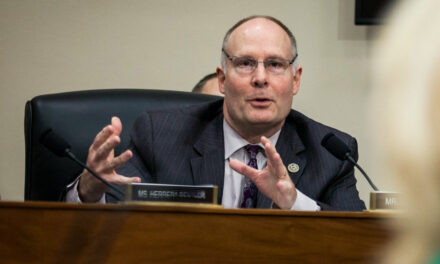We support our Publishers and Content Creators. You can view this story on their website by CLICKING HERE.
The judge ruled that Wisconsin statutes indicate that once a candidate files valid nomination papers, they must remain on the ballot unless they die.
A Wisconsin judge has rejected former independent presidential candidate Robert F. Kennedy Jr.’s request to have his name removed from the state’s general election ballot, opening the door for a possible appeal.
Kennedy withdrew from the presidential race at the end of August, endorsing former President Donald Trump and seeking to have his name removed from the ballot in key battleground states so as not to split the conservative vote and boost Trump’s odds of winning. The presence of independent and third-party candidates could be significant in Wisconsin, where four of the last six presidential elections were decided by narrow margins ranging from around 5,700 to 23,000 votes.
Kennedy’s attorneys pointed out that Republicans and Democrats had until 5 p.m. on the first Tuesday of September to withdraw their presidential nominees from the ballot, while independent candidates could only withdraw by an Aug. 6 deadline for submitting nomination papers.
In denying Kennedy’s request, the judge ruled that Wisconsin statutes clearly indicate that once a candidate files valid nomination papers, they must remain on the ballot unless they die.
Ehlke said during the proceedings that many county clerks had already sent out ballots for printing with Kennedy’s name ahead of a looming deadline. County clerks must deliver ballots to municipal clerks by Sept. 18, as absentee ballots must be mailed by Sept. 19.
Kennedy’s attorneys suggested that clerks could cover his name with stickers, but the judge rejected the idea, citing logistical challenges and the risk of stickers interfering with the operation of ballot-counting machines. He also warned that errors in covering names could lead to potential legal disputes.
In hopes of expediting a possible appeal in case of an unfavorable ruling by Ehlke, Kennedy’s attorneys had asked the 2nd District Court of Appeals to take the case days before Tuesday’s ruling by the Dane County Circuit court. The appeals court had been waiting for the ruling before deciding whether to take the case, with online court records not indicating any immediate action from the appeals court following Tuesday’s ruling.
A request for comment sent to Kennedy’s campaign was not immediately returned.
The ruling is the latest chapter in Kennedy’s efforts to withdraw from ballots in key swing states, where the competition between Trump and the Democratic nominee, Vice President Kamala Harris, remains tight.
After Kennedy announced his withdrawal in late August, his campaign stated that voters in noncompetitive states should continue supporting him, while in battleground states such as Wisconsin, Kennedy sought to avoid splitting the conservative vote.

 Conservative
Conservative  Search
Search Trending
Trending Current News
Current News 






